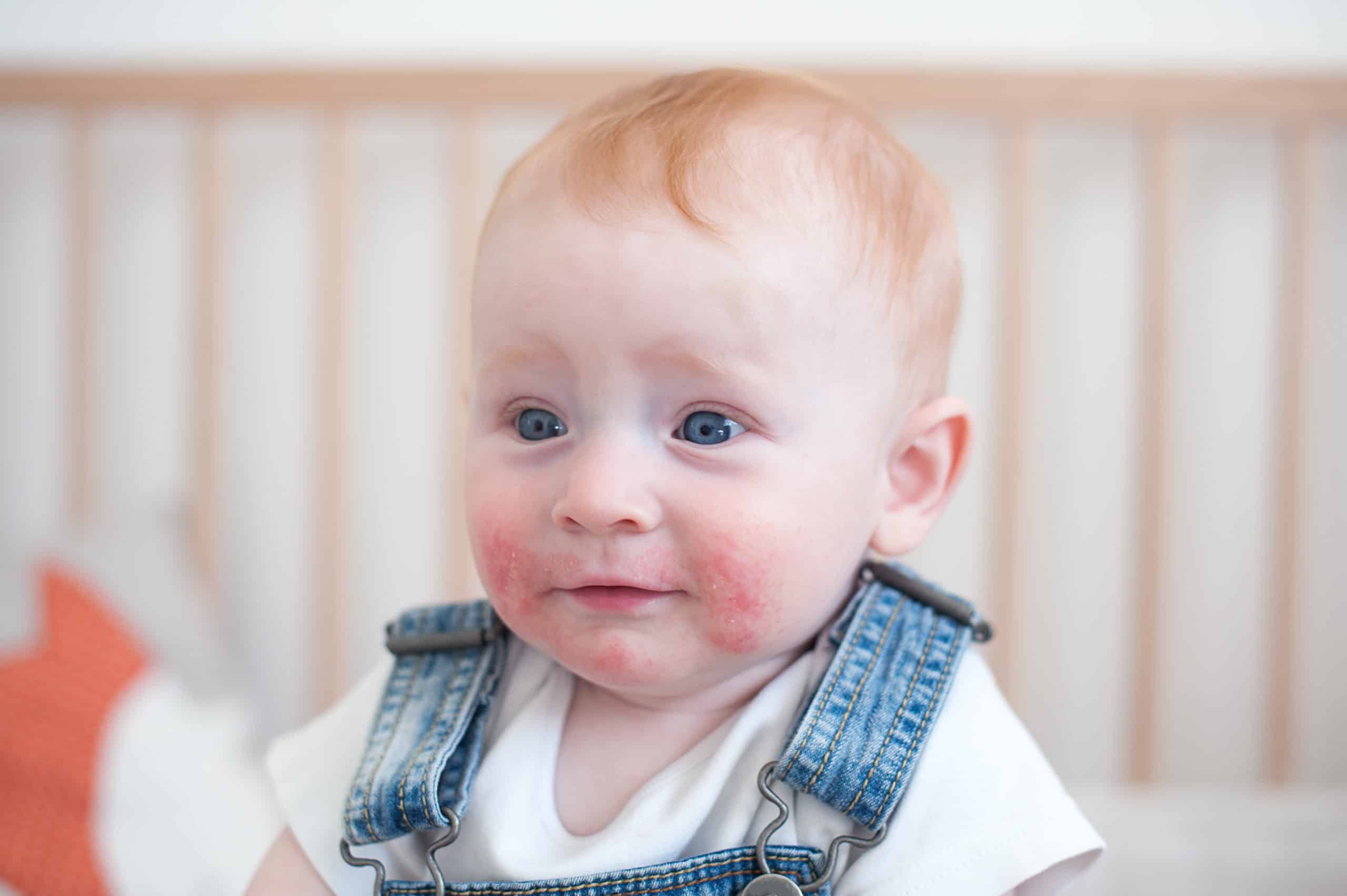What is Atopic Dermatitis?
Atopic dermatitis, also known as eczema, is a condition that causes the skin to become red and itchy. While it is common in children, it can occur at any age. It is a chronic condition, meaning that it is long-lasting, and can flare up periodically. This condition usually begins in infancy or early before childhood, and may persist into adulthood. Atopic eczema is best treated by a pediatric dermatologist who can help you determine possible causes and triggers so that your child may more effectively manage eczema later in life.
What Causes Pediatric Eczema?
It is not entirely known what causes eczema, but certain things called triggers may cause flare ups. Eczema is thought to be a malfunction of the skin barrier, resulting in dry skin and many other symptoms. Child’s eczema is similar but occurs instead in very young children. It is not an autoimmune diseases, but is a common immune system disorder.
Pediatric Eczema Symptoms
Atopic dermatitis symptoms can include:
- Dry, itchy skin
- Small, raised bumps that may leak fluid and crust over
- Skin inflammation
- Pigmented patches of skin, especially on the face and scalp in infants, and hands, feet, ankles, neck, wrists, upper chest, eyelids, elbows, and knees in children. They may appear red or purple in light skin and gray or brow in dark skin
- Thick, scaly, cracked skin
- Raw, sensitive skin due to scratching
If your child is experiencing eczema that negatively impacts their sleep or daily activities, has a skin infection, or continues to experience symptoms despite home remedies, you should contact our office today. A consultation with one of our skilled dermatologists is needed for proper assessment and treatment.
Diagnosing Pediatric Eczema
In children with eczema, flare ups can often be mistaken for food allergies. For this reason, it is important to seek out a pediatric dermatologist to perform allergy testing and arrive at an accurate diagnosis. Your dermatologist will ask about family history and any possible exposures your child might have had that triggered a flare up. Your dermatologist will also work with you and your child to prevent flare ups and alert your child’s doctor to treatment.
Pediatric Eczema Treatments
To successfully treat eczema, various treatments may be needed over months or years. Common treatment options include:
- Medicated creams: Topical steroid creams or ointments, and topical calcineurin inhibitors and phosphodiesterase inhibitors, may be prescribed to help with symptoms, as well as normalize the immune system.
- Antibiotics: Antibiotic ointment or oral antibiotics may be prescribed if the skin has a secondary bacterial infection, open sores, or cracks from severe atopic dermatitis.
- Phototherapy: A safe and useful therapy performed in our office for children with moderate eczema.
- Systemic Corticosteroids: For more severe cases of eczema, oral corticosteroids such as prednisone may be prescribed for bad flares.
- Immunosuppressive Therapy: Select children with severe disease may require therapy with methotrexate, cyclosporine, mycophenolate mofetil, or azathioprine.
- Biologic medication: Dupixent is a prescription medication and the first biologic approved to treat people six months of age and older with moderate-to-severe eczema that is not well controlled with prescription therapies used on the skin, or who cannot use topical corticosteroids.
- JAK inhibitors: Opzelura cream (ruxolitinib), and Rinvoq (upadacitinib) are used to treat more advanced cases of atopic dermatitis in children 12 and older.
For infantile eczema (eczema in babies), treatment includes:
- Prescription medication or an oral antihistamine may be prescribed.
- Identifying and avoiding skin irritants.
- Avoiding extreme temperatures.
- Keeping the baby’s skin lubricated with emollients, bath oils, and ointments.
What to Expect During Pediatric Eczema Treatment
Your dermatologist will explore possible causes and recommend a starting treatment based on your conversations around possible triggers and family history. Eczema treatment may require trying multiple medications or therapies before arriving at one that produces best results. Your dermatologist will support you and your child throughout.
What to Expect After Pediatric Eczema Treatment
Eczema is often a lifelong diagnosis and your child may need to use topical medicines for many years. However, your dermatologist will help you prepare to manage symptoms and support your child throughout. You will be given tools to manage flare ups and avoid them where possible. While treatment may help with symptoms for a time, eczema can be stubborn, and flare-ups may occur in the future. If your child is still bothered by their eczema following treatment, contact us regarding further options.
Schedule a Consultation
If your child is dealing with uncomfortable eczema, contact our office today to schedule a consultation with one of our dermatologists. Our team of skilled dermatology specialists will take the time to properly assess your child’s skin for a diagnosis and effective treatment. HMGS Dermatology is South Jersey’s leading site for exceptional care of patients with eczema/atopic dermatitis.

Get Started With A Visit!
Fill out the form below and we will reach out to you shortly to schedule an appointment.